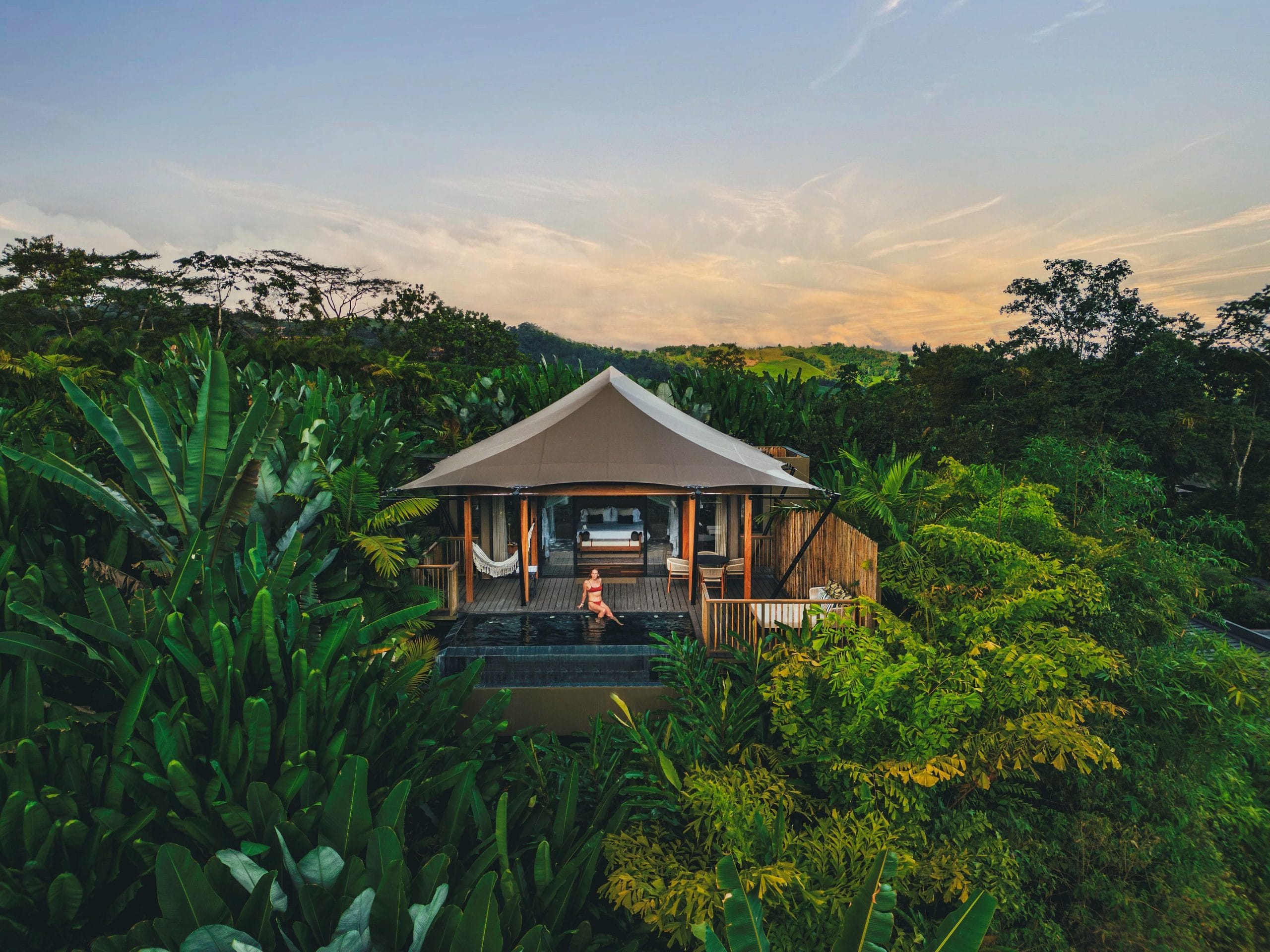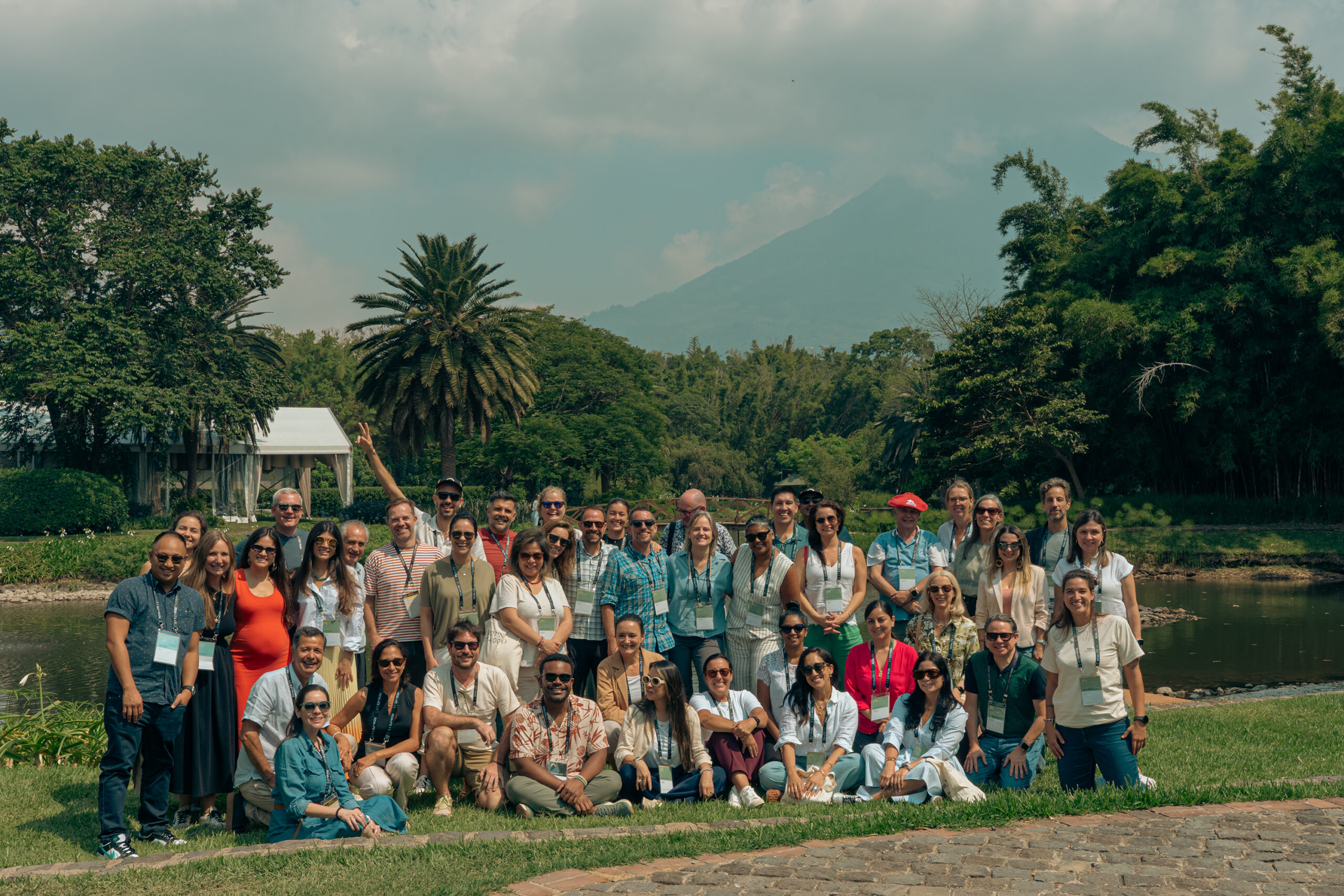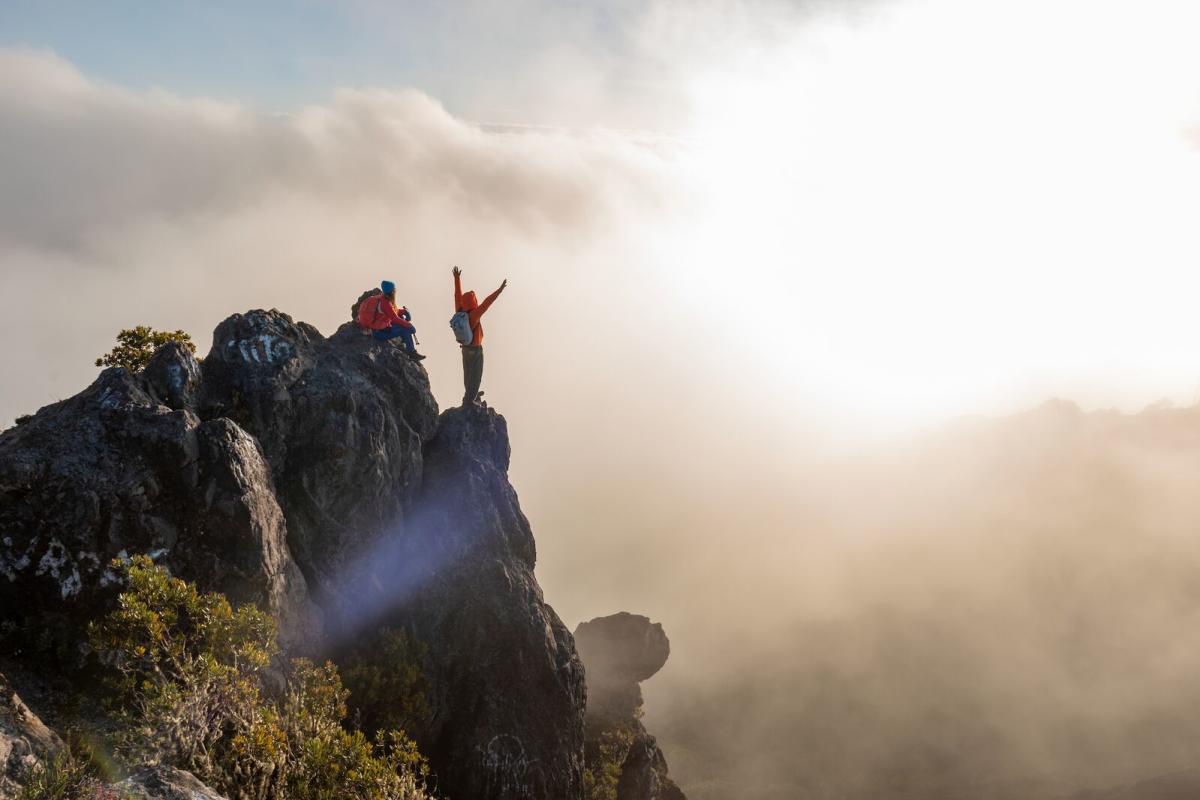As a community that enjoys the privilege of traveling and promoting tourism to the most fascinating remote natural places in Latin America, we understand how important — and urgent — it is to take care of nature and people. We are caretakers of the Earth.
The REMOTE Talks & Seeds speakers at the REMOTE Immersion in Puyehue invite us to assume the role of active conscious inhabitants of a threatened planet, encouraging us to respect, protect, and regenerate nature, from the water resources underground to the dark skies above us. Creating positive change requires a collective effort, uniting the private sector, academic researchers, public authorities, and civil society, including indigenous peoples, local communities, immigrants who make new places their home, and travelers alike.
With such a diverse lineup of speakers and emerging trends, REMOTE Latin America continues to fulfill its purpose of inspiring travel professionals to promote tourism that positively impacts the planet.
We invite you to meet the amazing panelists joining us this year in Puyehue for evenings filled with inspiring content, knowledge sharing, and innovative short talks!
REMOTE Talks: Our keynote speakers who are inspiring change
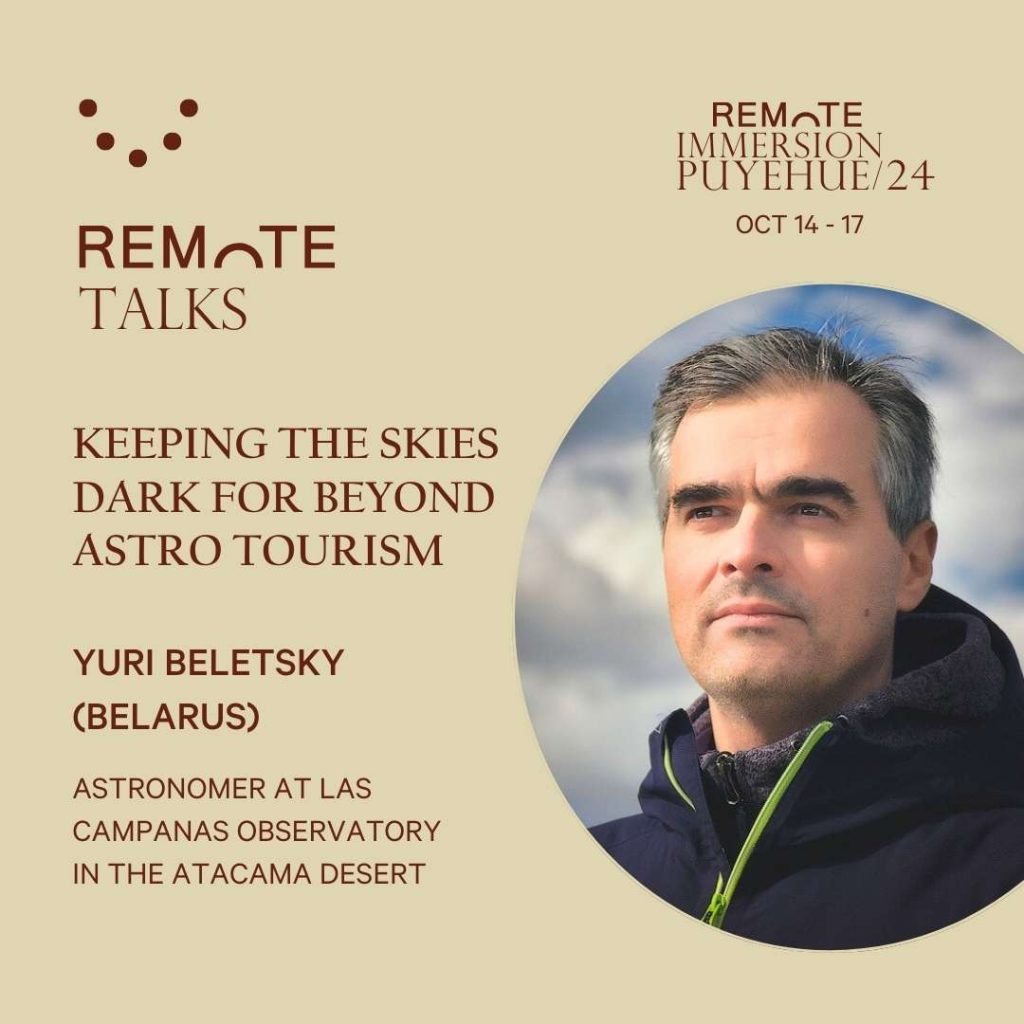
Yuri Beletsky is a professional astronomer and award-winning astro photographer who works in Chile’s Atacama Desert, one of the world’s premier locations for stargazing. He will discuss the rise of astro tourism as a global trend, offering unique opportunities to experience the awe of the universe and witness extraordinary celestial events in some of the most stunning locales on Earth. Special emphasis will be placed on the critical need to protect dark skies by minimizing light pollution.
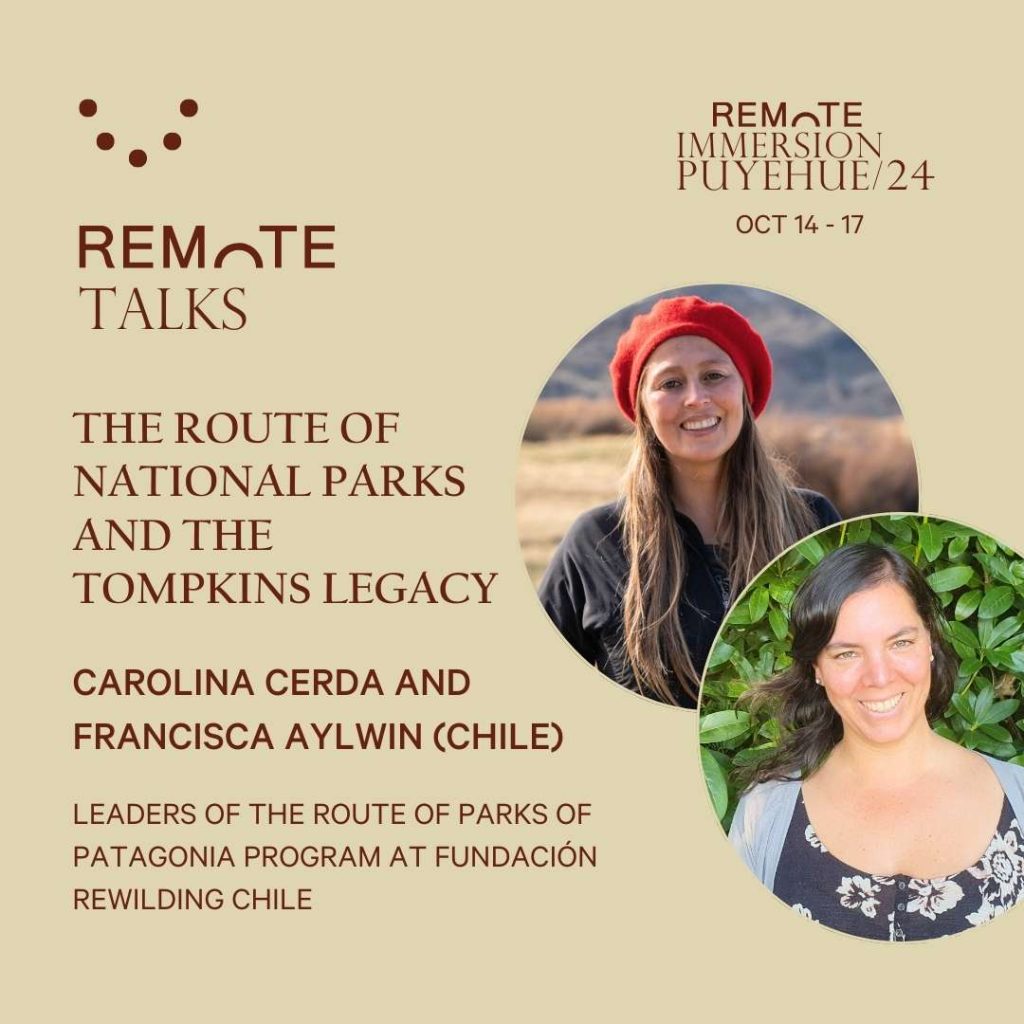
Conservationists Douglas and Kristine Tompkins led a revolutionary initiative through Tompkins Conservation to acquire large tracts of land in Chile, preserve the unique ecosystems of Patagonia and donate them to the state for the creation of national parks. After 30 years of challenges, the Route of Parks of Patagonia has become a model of environmental conservation that also benefits local communities. The details of this impact will be shared by program leaders Carolina Cerda and Francisca Aylwin of Rewilding Chile.
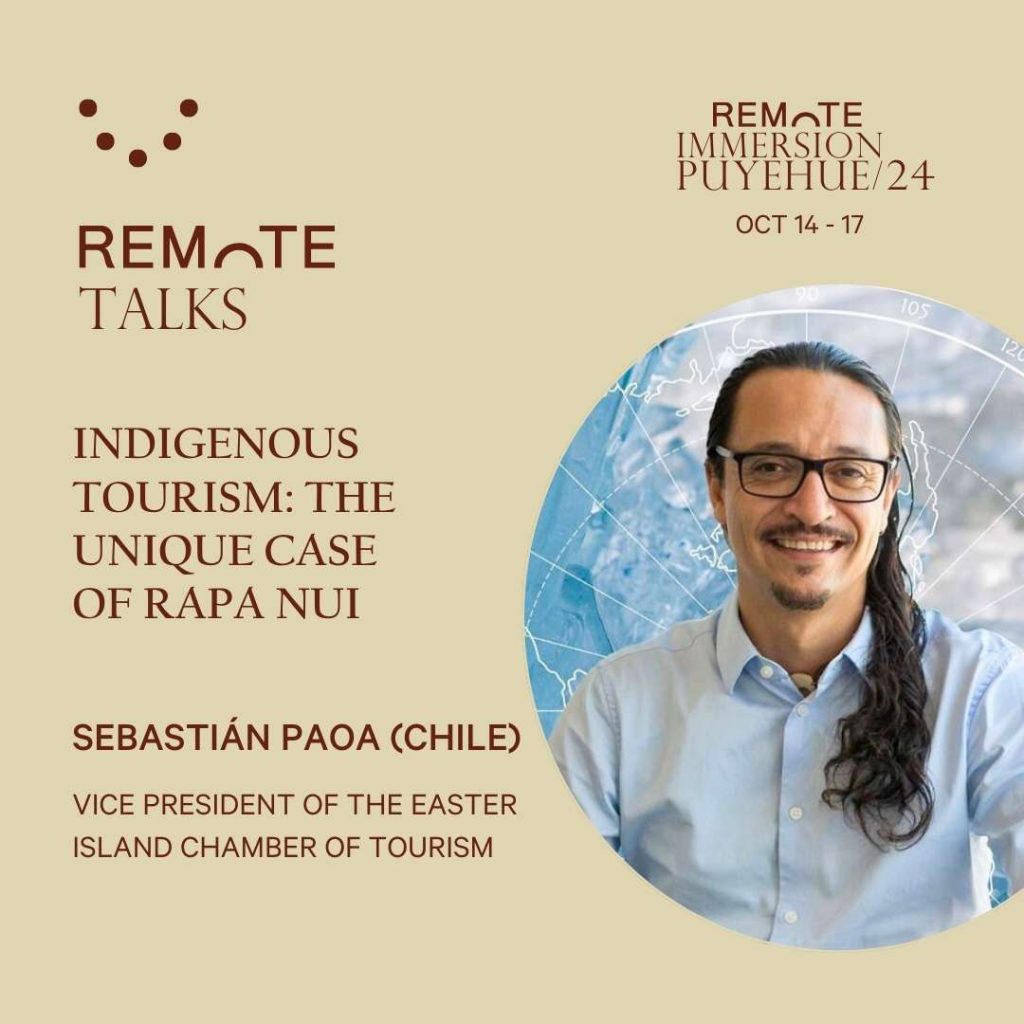
Rapa Nui National Park, home to the island’s most significant archaeological sites, generates over 92% of the local revenue through tourism. This achievement has made Rapa Nui an international reference in successful indigenous tourism. Sebastián Paoa, Vice President of the Chamber of Tourism of Easter Island and a Rapa Nui entrepreneur, has played a key role in this process. He shares how an indigenous community learned to reclaim and manage its most valuable resources.
REMOTE Seeds: A selection of inspiring speakers from the REMOTE Community
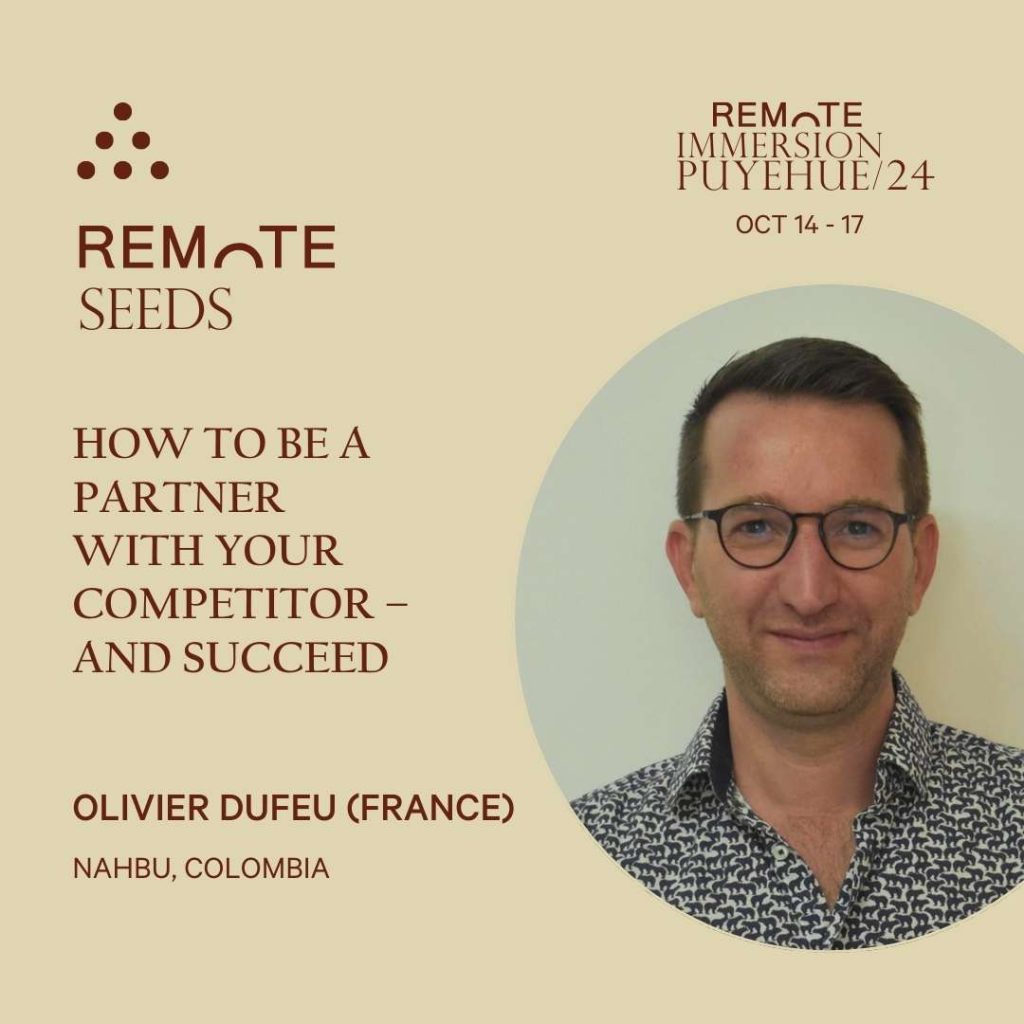
Would you join forces with a competitor in order to be more efficient, save money and strengthen your niche? A French entrepreneur based in Colombia, the managing partner of luxury DMC Nahbu, Olivier Dufeu, has experienced this challenge firsthand. Together with the owners of 14 boutique hotels in different regions of the country, he created Secretos de Colombia, a cooperation project that became a unique case of successful collective entrepreneurship.
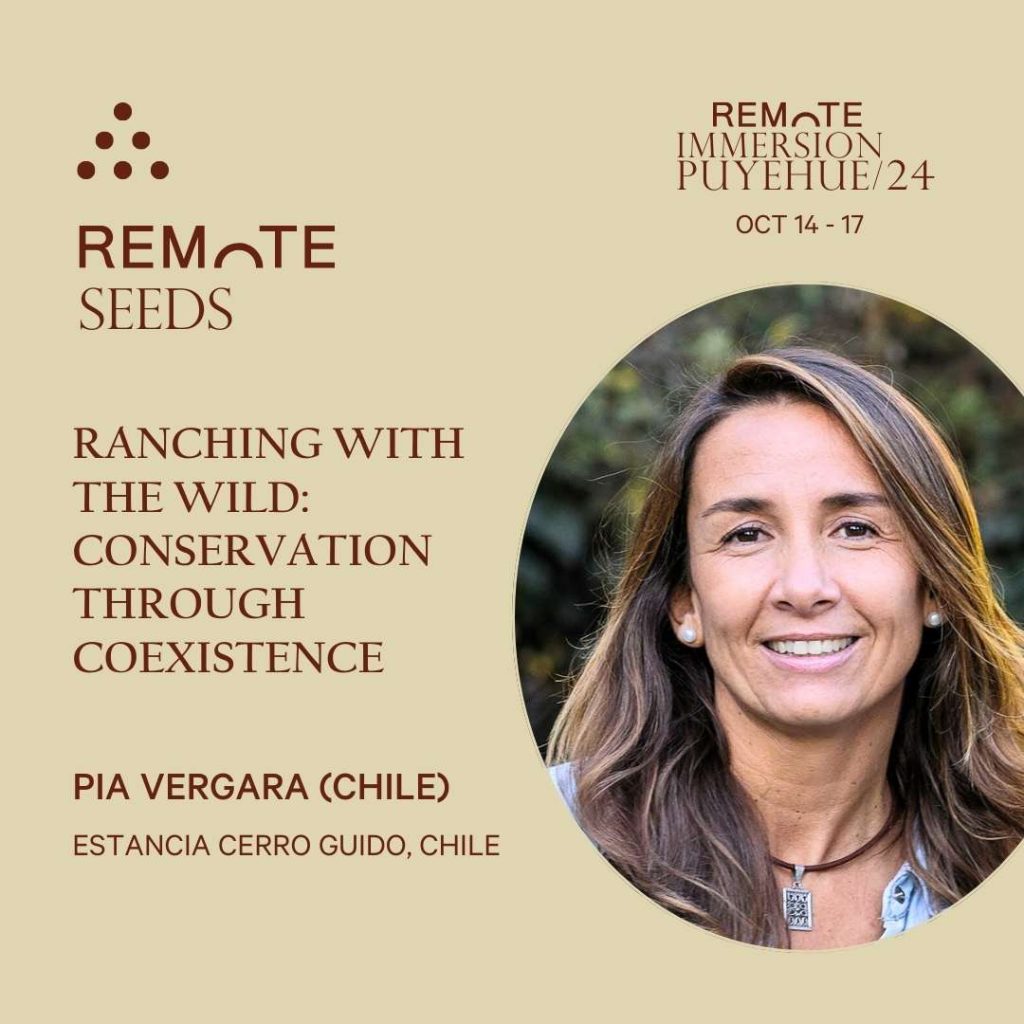
Through the entire History of Patagonia, ranching and the conservation of wildlife have been two opposing activities. Whenever a puma would kill a sheep, the local cattle ranchers simply killed the puma. With her background as a nurse, photographer and entrepreneur, Pía Vergara of Chile has worked to change this. The Executive Director of Fundación Cerro Guido Conservación has proved that it is possible to harmonize ranching, wildlife conservation and sustainable tourism.
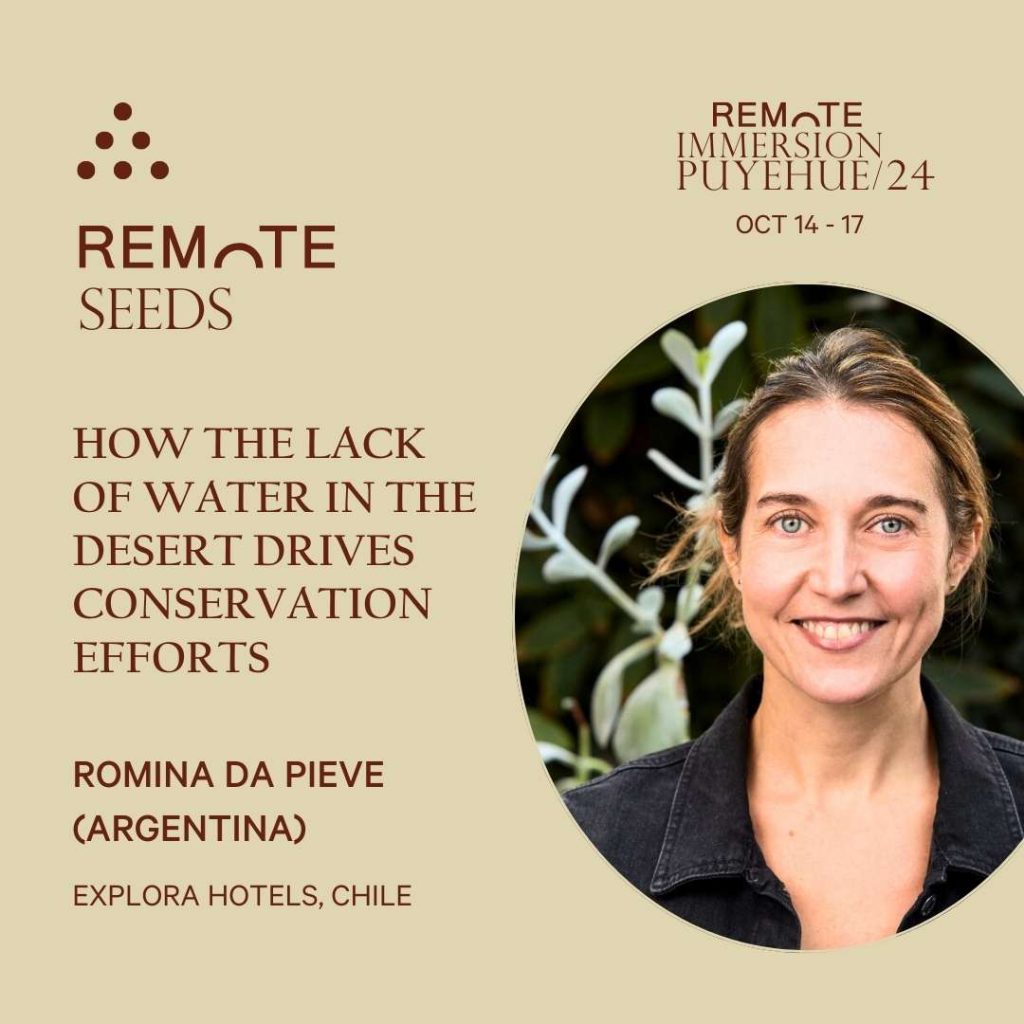
Global warming has exacerbated the depletion of water resources in delicate destinations like the Atacama Desert. A recent study showed that the rise in travelers has impacted water consumption and worsened the crisis that affects nature and local communities alike. Explora’s Conservation and Sustainability Deputy Manager Romina Da Pieve presents some initiatives to tackle these challenges – from measuring water footprints to conserving the Puritama Reserve.
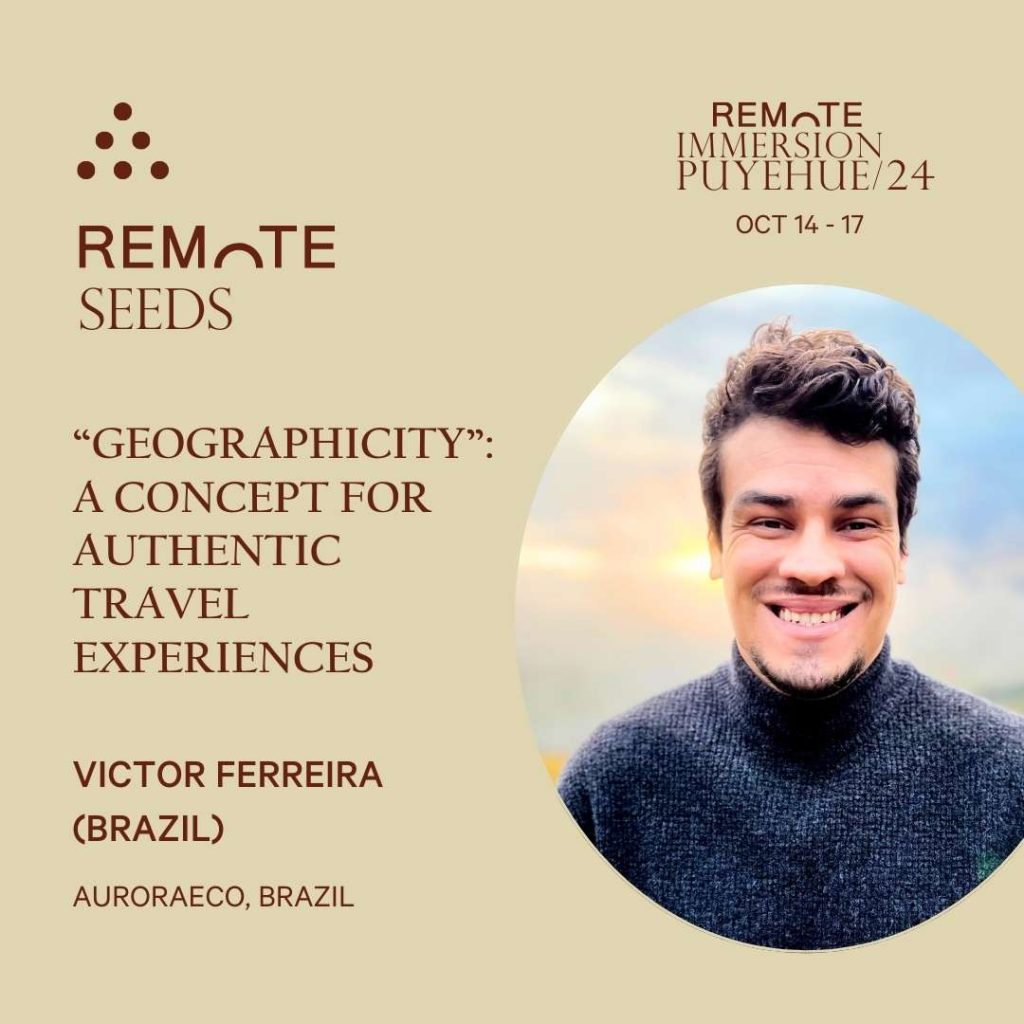
In his recent Masters studies in Geography, Auroraeco Inbound Division Coordinator Victor Ferreira was inspired by a fascinating theory from French geographer Eric Dardel: “Geographicity,” a concept that investigates the relationship between human beings and the physical world we explore. Discussing these ideas can bring new ways to design travel experiences to create deeper, more authentic connections between travelers and destinations.
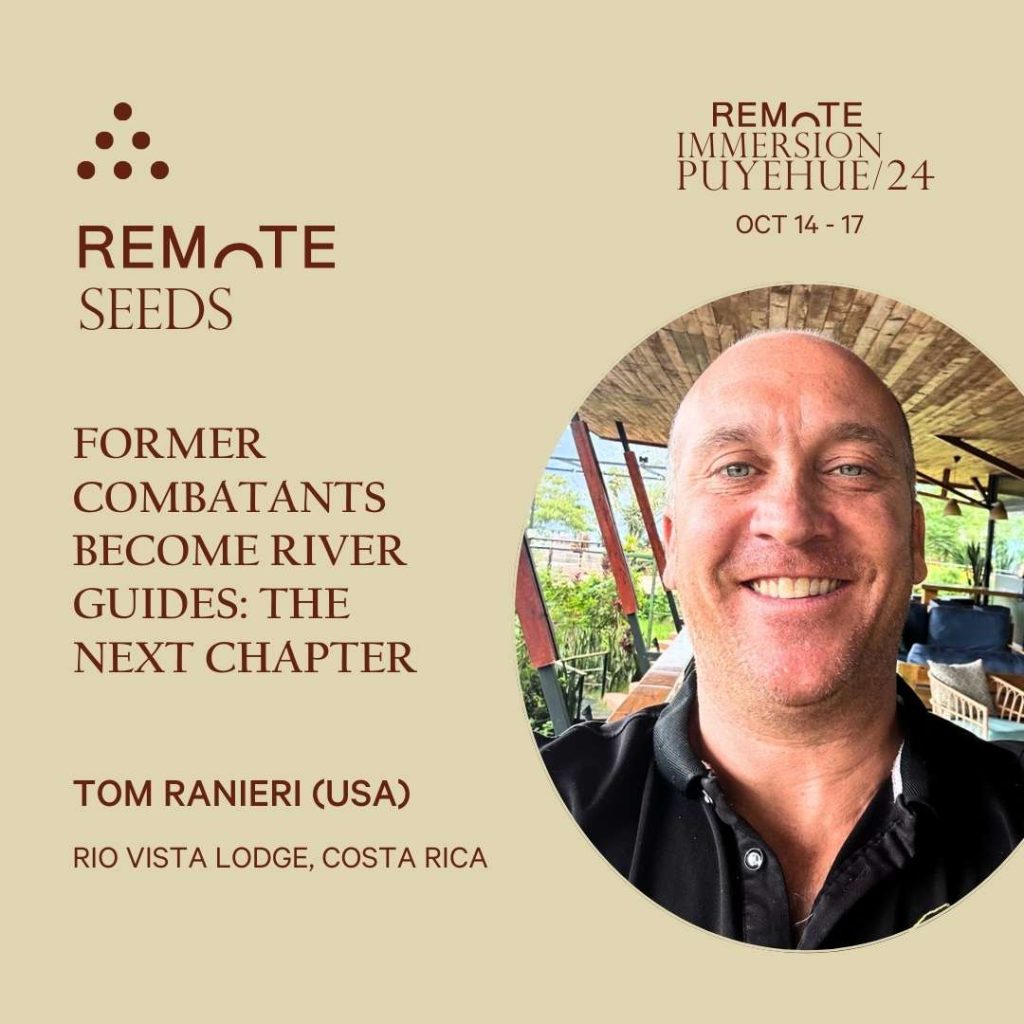
In 2019, Paddle For Peace became a noteworthy project in Colombia for successfully teaching former FARC fighters to become rafting river guides. Born in the US and based in Costa Rica, the owner of Rio Vista Lodge Tom Ranieri was one of the leaders who brought the rafting team from Costa Rica to train the ex-combatants. He also helped the Colombian team travel to Australia — and recently hosted the new Colombian guides in Costa Rica to learn about sustainable tourism in his adopted country.
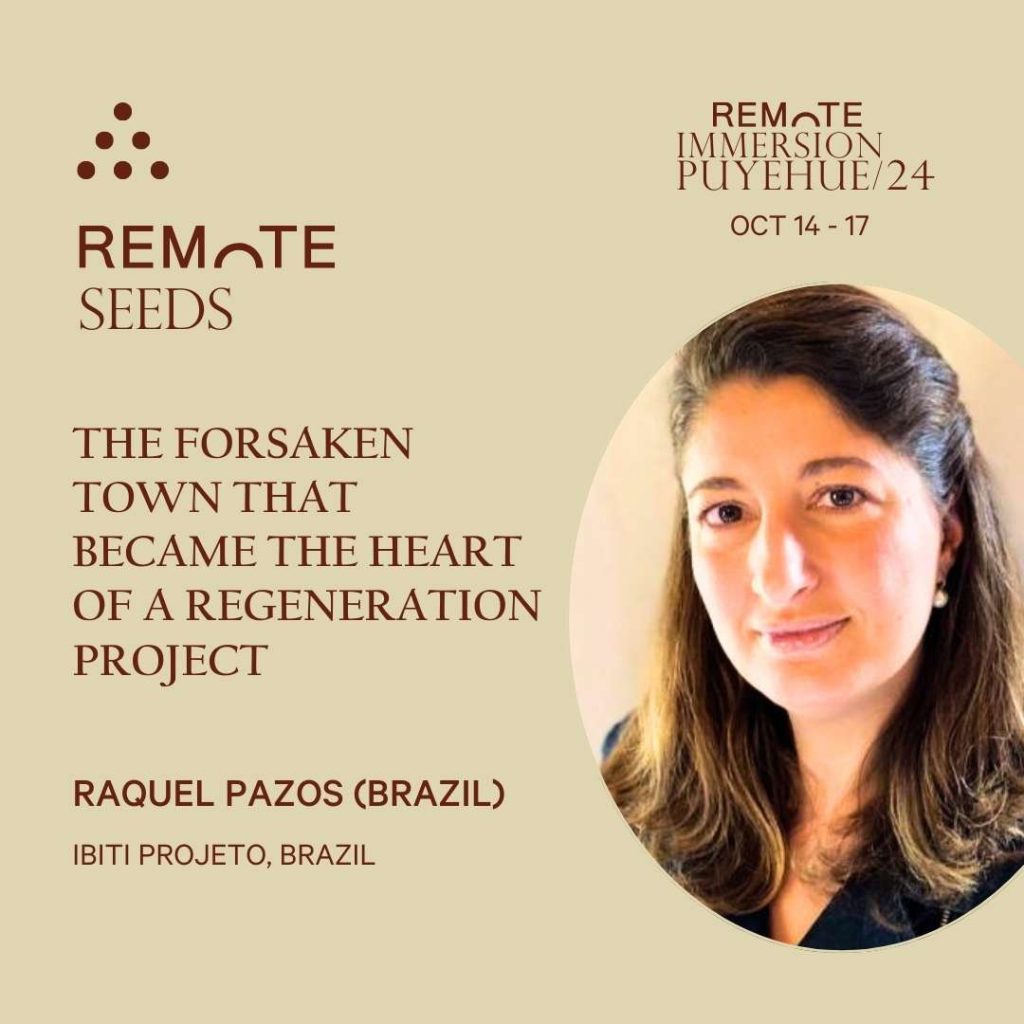
The little village of Mogol, located in the mountains of Minas Gerais, virtually disappeared from the map after the economic decline due to soil degradation caused by dairy farming. Its state of abandonment started to change in 2016: the town was included in the regeneration process of Ibiti Projeto, an experimental social and environmental initiative with diverse and exclusive lodging options, led by the administrative director Raquel Pazos. Former residents returned and a renovated Mogol was reborn.
